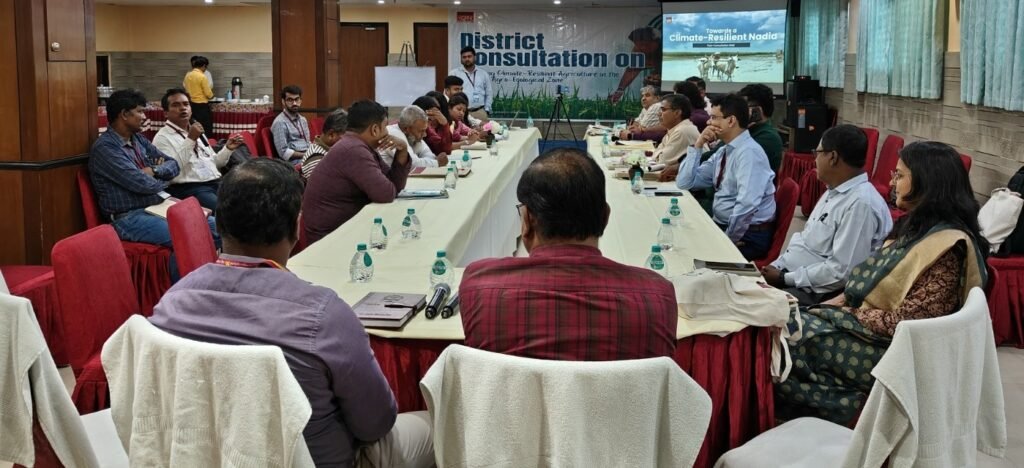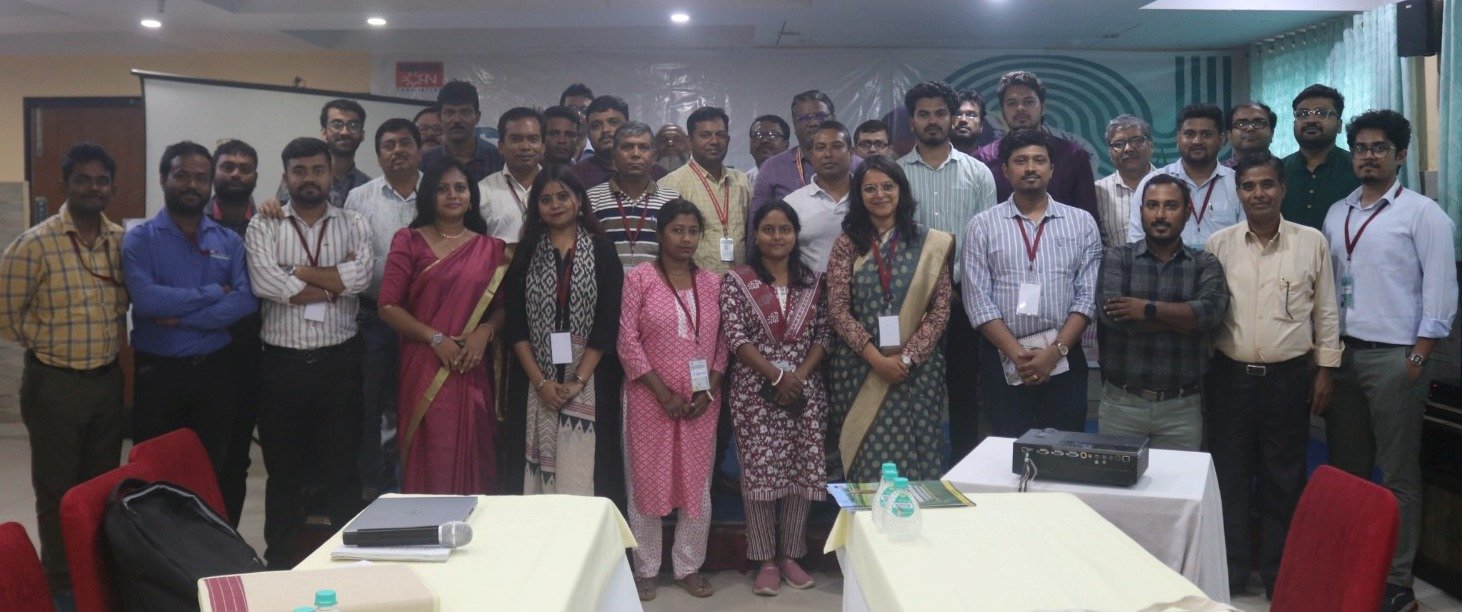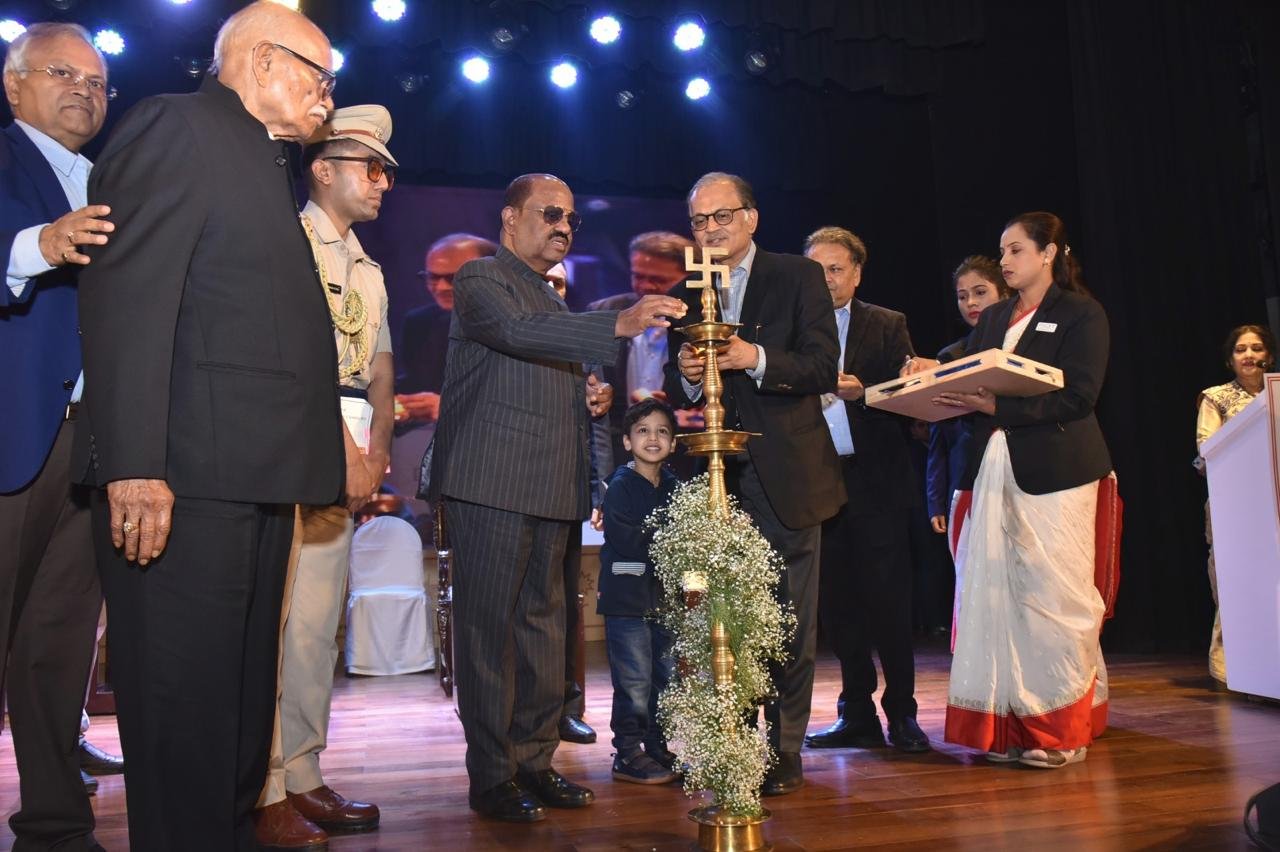Nadia, 05 June 2025 : In an effort to transform the agricultural landscape and build a sustainable food system, SwitchON Foundation, supported by Shakti Sustainable Energy Foundation, hosted a District Consultation on Climate-Resilient Agriculture in Nadia. This convening brought together Farmer Producer Organizations (FPOs), Krishi Vigyan Kendras (KVKs), government officials, Self Help Groups, Financial Institutions, Market stakeholders, civil society actors and progressive farmers to co-develop a district-specific framework that integrates climate-smart practices across the farm-to-fork ecosystem.
Building on the insights from the introductory dialogue, stakeholders examined the multifaceted problems that threaten Nadia’s agricultural stability. Excessive groundwater irrigation has led to widespread arsenic contamination—jeopardizing both human health and crop safety. Concurrently, unpredictable rainfall and shifting monsoon patterns have exacerbated water scarcity, disrupting traditional jute retting practices and accelerating soil degradation. Recently, hailstorms in Hanskhali underscored the region’s vulnerability, inflicting crop damage and diminishing produce quality.
At the same time, shrinking pastureland with acute issues such as Hybrid seeds have reduced both the quantity and quality of fodder, mechanized paddy cultivation has led to a shortage of paddy straw, and excessive pesticide use is poisoning livestock which further strained livestock farming, leaving many farmers without reliable fodder. Compounding these environmental stresses, inadequate infrastructure and poor market connectivity prevent farmers from transporting and storing produce efficiently, trapping them in a cycle of low revenue. Finally, heavy chemical input shave, undermining long-term fertility and contaminating groundwater—an issue that not only threatens agricultural sustainability but also poses significant public health risks. Together, these linked challenges highlight why a coordinated, climate-resilient approach is urgently needed.

Recognizing these interrelated problems, participants shifted to collaborative planning—focusing not just on individual farm practices but on reimagining the entire food system. Stakeholders discussed how crops are grown, stored, processed, and brought to market, with particular emphasis on climate-resilient techniques, renewable energy, resource efficiency, and women’s leadership. This collective dialogue yielded several key insights, captured in the following stakeholder quotes:
“Jute cultivation in Nadia is increasingly at risk due to the twin challenges of climate variability and water scarcity. Changing monsoon patterns have made water availability uncertain, and with ponds disappearing and river retting damaging the ecosystem, we must urgently identify new water sources and adopt technologies for eco-friendly jute processing. Micro-level planning at the village scale is essential to sustain livelihoods and protect the environment.” said by the Deputy Director of Agriculture, Nadia, West Bengal.
“It is essential to co-design solutions with communities, and this platform allows diverse stakeholders to come together for systemic transformation,” said Ekta Jaju, Executive Director, SwitchON Foundation.
Following these reflections, participants engaged in plenary discussions and thematic breakout sessions to co-create actionable strategies. These strategies centered on advancing climate-smart and natural farming techniques, scaling up decentralized renewable energy in agriculture, enhancing water- use efficiency and soil health, strengthening FPOs for improved market access, and ensuring active participation of women across agricultural value chains with a supportive ecosystem provided by Financial institutions, Market and government bodies.
Drawing on the key insights above, stakeholders identified Hanskhali block as the ideal pilot site to refine and test climate-resilient interventions. Hanskhali faces severe arsenic contamination and groundwater depletion, while high monocropping rates leave crops highly vulnerable to weather volatility. The recent hailstorm further damaged local harvests, and poor infrastructure and limited market access continue to undermine farmers’ incomes from excessive synthetic inputs and overall low productivity trap households in a cycle of poverty.
Yet Hanskhali also presents distinct opportunities: a growing organic-farming movement—with certified practitioners already in place—and active livestock rearing that can be integrated into diversifying farmers income, increasing climate resilience and increasing farmer self sustainability. Moreover, the existing ON-FARM FPCs are practicing organic cultivation with certification under the NPOP & NOP. Further, they practice traditional seed cultivation, and the planned government-supported integrated farming cluster promises to bolster local infrastructure. These factors position Hanskhali to become an organic-agriculture hub, making it the logical next step for piloting and scaling climate-resilient solutions.
To translate these insights and site-specific strengths into concrete action, participants agreed to launch a micro-level pilot survey in Hanskhali block. The survey will identify precise local challenges and opportunities for climate-smart interventions, informing a joint proposal that outlines a clear roadmap with defined responsibilities.
As part of this roadmap, the ATMA Committee will oversee the monitoring of residue-free farming practices, ensuring alignment with sustainable agricultural standards and providing farmers with the necessary support to transition to eco-friendly methods. Throughout the implementation process, SwitchON Foundation will serve as a facilitator and bridge among all partners—coordinating activities, promoting knowledge exchange, and integrating scalable solutions. By anchoring these efforts in Hanskhali’s unique context, Nadia’s pilot will generate a replicable model for transformative food system change at the grassroots level.
This initiative exemplifies SwitchON Foundation’s continued commitment to building climate-resilient communities through innovation, grassroots engagement, and systemic change in agriculture. Supported by Shakti Sustainable Energy Foundation, the district-level consultation and subsequent Hanskhali pilot form part of a broader mission to catalyze policies, partnerships, and practices that reduce greenhouse gas emissions and enhance resilience across India’s food systems. By linking each phase—from problem identification to collaborative insights, site selection, and concrete action—this initiative paves a clear path forward for sustainable, climate-resilient agriculture in West Bengal.



